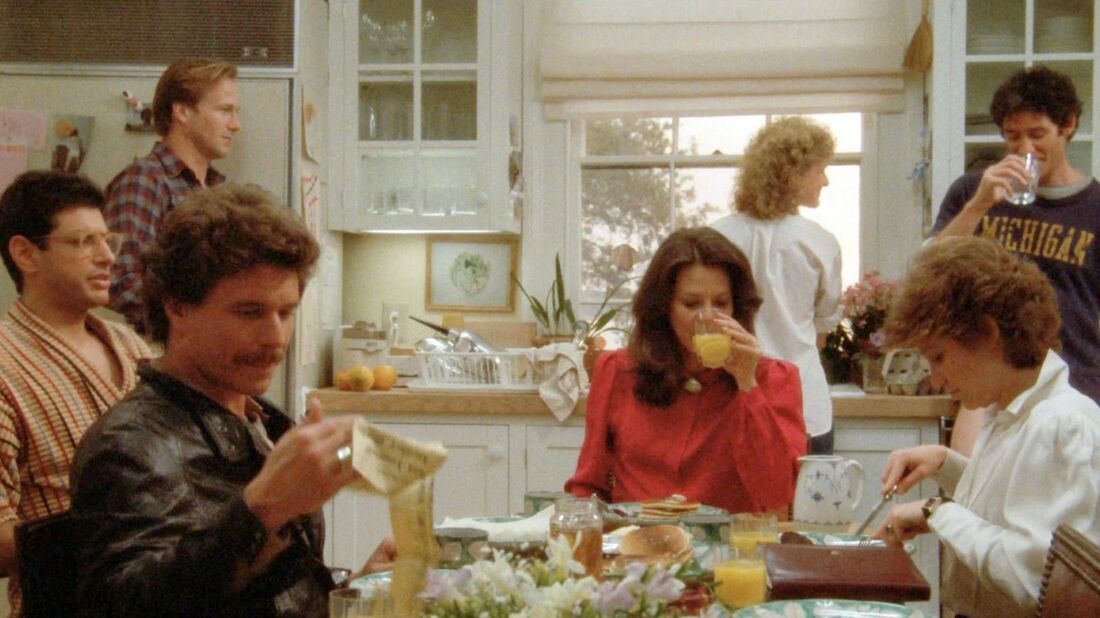Kasdan, who also co-wrote the script with Barbara Benedek, does half the work in character establishment with his casting. Kline projects a sardonic quality that makes him untouchable. Hurt’s soulfulness, Berenger’s good-ol-boy charm, and Goldblum’s eccentricity all inform their roles, as does Place’s bluntness. Close is the most versatile of the group, which synchs with Sarah’s able managing of their complicated demands and dynamics. The single men compete for the affections of Alex’s ex (Meg Tilly) while the women are more introspective and willing to bring up the elephant in the room. The film’s centerpieces aren’t the occasional blow-up, but the kitchen every morning, where each character stumbles, a little hung-over, for the coffee pot. These warm scenes, combined with the concise characterization, make The Big Chill feel familiar and nostalgic for the last time the viewer met up with a big group of friends, noting who went to bed earliest and who caught the sunrise on the porch.
The Big Chill’s universal qualities mostly salvage what I wanted out of it, which was a Linklater-esque discussion of aging and values and what living through a shared momentous time meant for the characters 15 years on, if it meant anything at all. The transition from the upheaval of the 60’s to the retrenchment of the 80’s is fascinating, and what better way to examine it than a major movie set in a single location. Kasdan and Benedek are both boomers, as is the whole cast with the exception of Tilly. The Big Chill should feel more incisive than it is. The film takes no more controversial a position than ‘everyone’s doing the best they can.’ Hurt’s Nick, maimed in Vietnam, doesn’t have that many objections about his old friends Harold and Sarah becoming stalwart members of the conservative upper class. Place’s Meg has switched to real estate law after a stint as a public defender, because in her telling, she was tired of all her clients being guilty. Sam’s a dope on a procedural TV show and Michael writes fluff while haranguing his friends to invest in his club. It’s all comfortably conservative in the least challenging way possible.
Where the 60’s persists in The Big Chill is with sex and drugs, which is the most trenchant part of the film’s vision of the era. Even straight-edge shoe-store magnate Harold tokes it up from Nick’s stash, and several characters sleep together in surprising and tender pairings. All the activism and the aspiring cultural changes extended as far as pleasure and hedonism. Keep the stuff that makes you feel good, and junk the stuff that challenges your existence. The Big Chill brings all this subtext on itself by choosing to make its characters into ex-hippies, but that’s little more than past trivia. Kasdan and company apply a sheen of seriousness to their unserious film. I’d prefer to watch this cast make dinner to a hit song, stripped of context, and The Big Chill at least provides those insubstantial charms. C+

 RSS Feed
RSS Feed